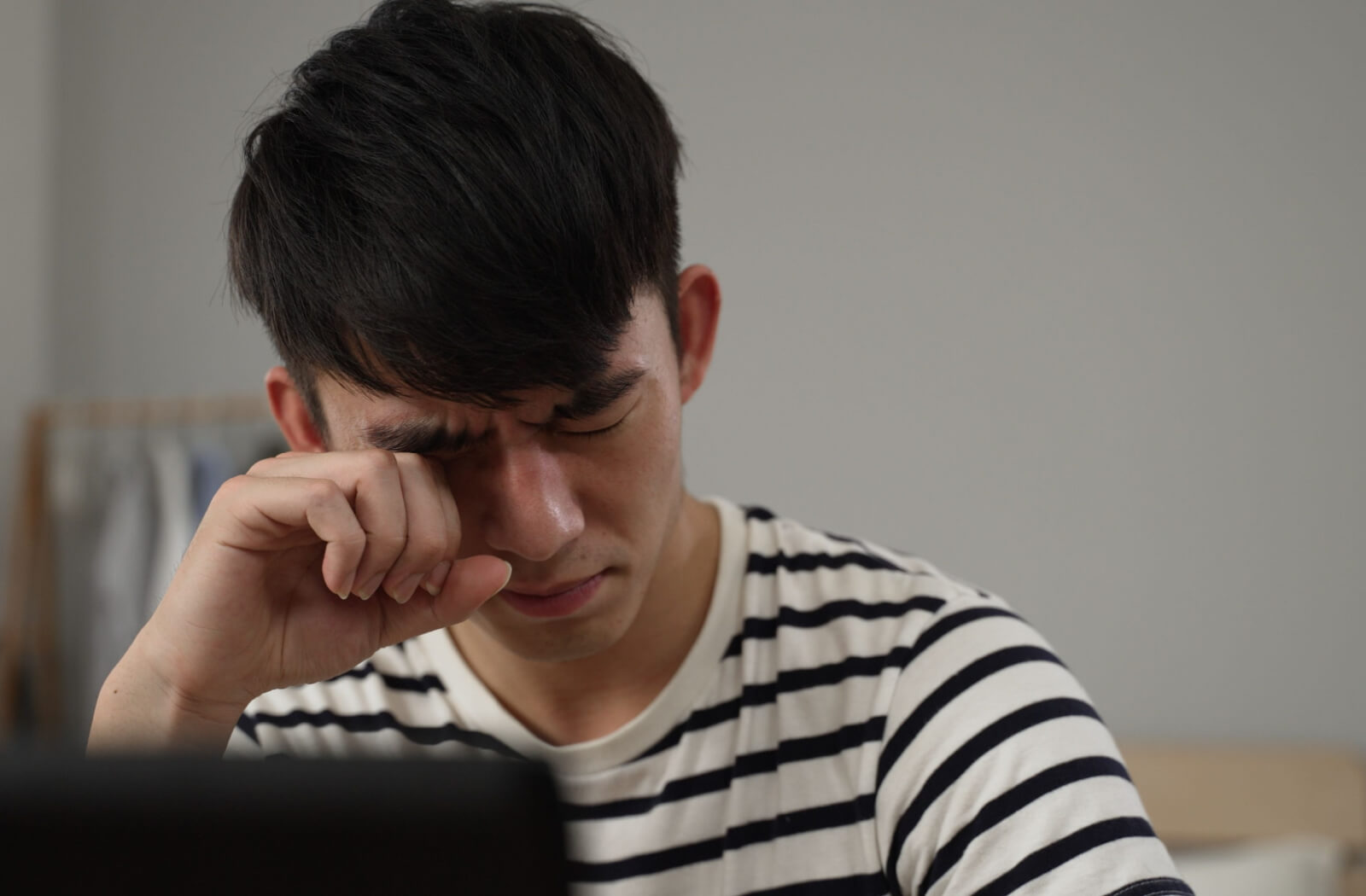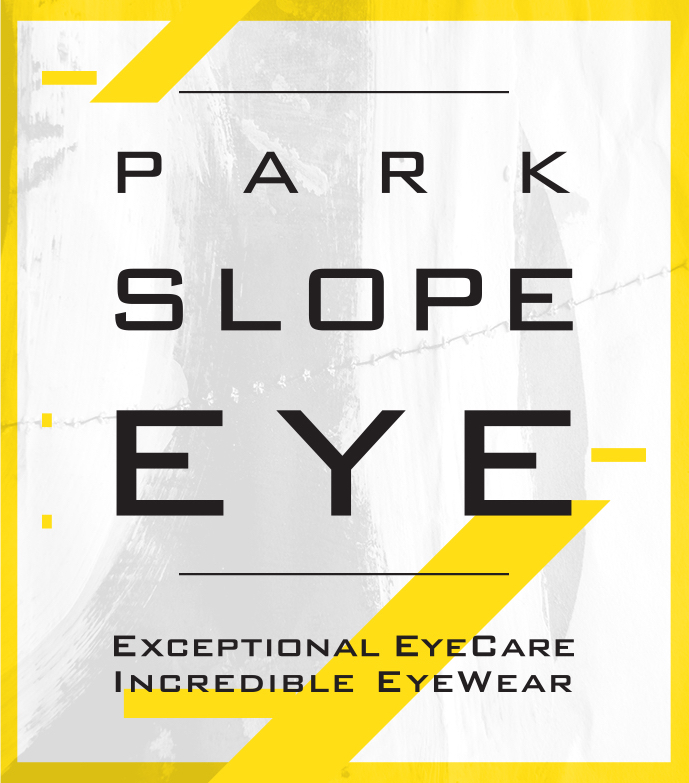It’s easy to get worried when your eyes hurt. You may wonder if you need to rush to your eye doctor for treatment or if your irritation is from too much screen time. This pain can come from many sources, including stress.
Stress can affect the eyes in many ways, including causing eye strain—the feeling of sore, tired eyes. Short-term stress won’t affect the eyes negatively, but long-term unmanaged stress can lead to several uncomfortable symptoms.
While caring for your stress levels is important, so is visiting your eye doctor. They can help determine the root cause of your discomfort.
Stress Can Affect Your Eye Health
Everybody feels stressed at some point. It can even help some people focus and work towards their goals. Stress releases hormones that help the body combat threats, known as your “fight or flight” responses.
However, too much stress is never good—it can damage your mental and physical health. Long-term stress can even affect your eye health and vision.
The American Academy of Ophthalmology notes several ways stress can affect your eyes, including:
- Increased eye pressure: Eye pressure can change naturally, and short periods of elevated pressure aren’t harmful to the eyes. However, long-term high pressure can damage the optic nerve. Glaucoma can also cause this damage, so book regular eye exams—especially as you get older.
- Eye twitching: A common sign of stress, eye twitching can feel strange and uncomfortable. While this twitching is typically harmless, it can be a sign of poor sleep, stress, and too much caffeine.
- Light sensitivity: Stress and anxiety can cause lights to feel brighter and uncomfortable to look at, known as photophobia. While light sensitivity can occur due to stress, visit your eye doctor if you experience it consistently or for a long time—it may be a symptom of another eye problem.
- Eye strain: Eye strain can have many possible causes, including digital device use, but stress and anxiety are common culprits.
- Dry or watery eyes: The body’s response to stress can lead to dry or watery eyes. If your eyes are constantly dry, visit your optometrist—you may have dry eye disease.
- Eye floaters: While stress isn’t the definite cause of eye floaters, you’re more likely to notice them when you have heightened awareness.
- Tunnel vision: High stress levels can lead to tunnel vision—affecting your ability to use your peripheral (side) vision. However, if you experience consistent tunnel vision, reach out to your optometrist as soon as possible. Loss of peripheral vision can mean potential vision loss.
- Blurry vision: Stress doesn’t worsen your vision, but your sight may seem out of focus. In stressful situations, like during a panic attack, blurry vision can occur due to hyperventilating.
Manage Your Stress
It’s easier said than done, but managing stress will benefit your eyes and overall health in the long run. If you struggle to manage stress, you can try different relieving activities or visit your doctor to see how they can help. Don’t forget to book regular eye exams to help protect your vision.
You can lower your stress levels in several ways, including:
- Deep breathing
- Limited time on social media
- Connection with family and friends
- Mindfulness meditation
- Regular exercise
Common Causes of Eye Pain
Stress isn’t the only cause of eye pain—many eye conditions can cause pain and irritation. Some issues are minor, while others can be a sign of a significant risk to your vision.
Some common causes of eye pain include foreign objects in the eye, pink eye, contact lens irritation, dry eye, and injury.
Foreign Object in the Eye
When a foreign object enters the eye, it’s painful. Depending on the size and type of the object, it can scratch or irritate the eye, leading to inflammation or infection.
Dirt, dust, or even eyelashes can all cause eye pain, not mention other objects or materials. If you have eye pain or feel something in your eye, seek medical attention. Ignoring it can lead to future eye problems.
Pink Eye
Pink eye is a common condition where the conjunctiva becomes inflamed. Eye pain is not always associated with pink eye, but it can cause discomfort and irritation, making daily activities challenging.
While usually mild and treatable, taking precautions like frequent handwashing and avoiding rubbing the eyes can help prevent its spread.
Contact Lens Irritation
Contact lenses are a popular option for vision correction without glasses. However, improper use can cause discomfort, eye pain, and irritation.
Irritation causes red, itchy, light-sensitive eyes. If discomfort arises, speak with your eye doctor to prevent complications. Proper care and precautions can help protect your eyes.
Dry Eye
Dry eye is a common condition that affects millions of people, causing discomfort. It occurs when there are issues with your tear film, resulting in dryness, burning, and pain.
Luckily, treatments like artificial tears, medications, and lifestyle changes can help provide relief. If you have persistent pain or discomfort, visit your eye doctor for diagnosis and treatment.
Injury
Eye injuries can be painful and distressing—they shouldn’t be ignored. Visit your optometrist as soon as possible if you experience pain, sensitivity to light, redness, and irritation.

Don’t Ignore Eye Pain
Eye pain can happen for many reasons, but don’t ignore persistent discomfort. Stress, injury, or eye strain may lead to temporary irritation, but visit your eye doctor if it lasts more than a few hours or presents alongside other symptoms. Always be safe when it comes to your vision.
Contact us at Park Slope Eye in Brooklyn if you experience eye pain or symptoms of another eye problem.









